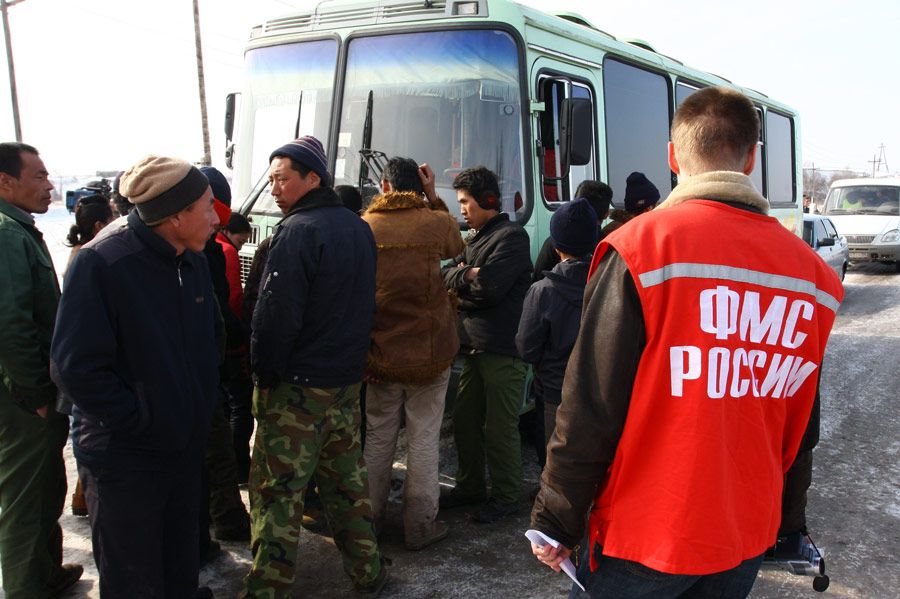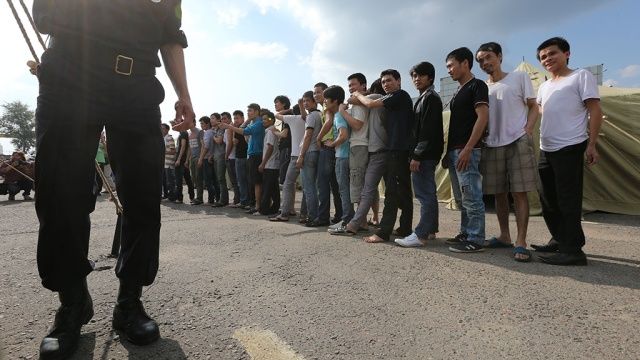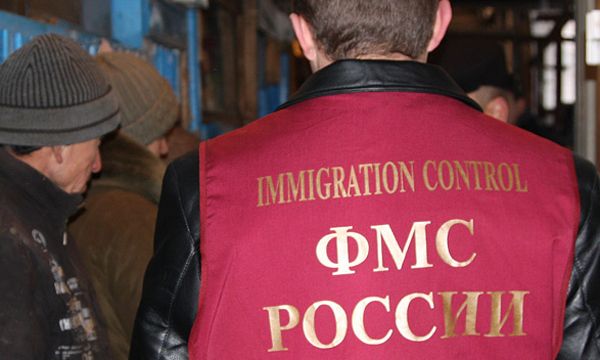Deportation from the Russian Federation
Deportation from Russia can only be threatened with foreign subjects or stateless persons who have grossly violated migration rules. Deportation as a form of administrative punishment cannot be applied to full Russian citizens, as it is fundamentally contradicts all international rights and the Constitution of the Russian Federation. Many people by virtue of ignorance in the field of jurisprudence are deportation with deprivation of citizenship. The deprivation of citizenship took place only during times when Russia was part of the USSR, but in the modern Russian Federation such preventive measures are not provided.
Checking the availability of grounds for insolving entry into the territory of the Russian Federation to foreign citizens and stateless persons on the Ministry of Internal Affairs of Russia is available at the link
The value of the term
So what is deportation? According to the current legislation of Russia, deportation is a compulsory movement of foreign subject or apatrid beyond the Russian Federation. This term could be called the synonym for the term "expulsion", if it were not for one "but". The rules of administrative expulsion allow that the violator has the full right to independently leave the Russian Federation, without a convoy. And such a punishment as deportation, in turn, provides for the mandatory presence of special support - when a person is deported, the convoy accompanies it up to the moment until the violator was outside of Russia.

Deportation is the last and most effective impact lever in the fight against illegal migration. When numerous warnings, protocols and exhortations are useless, a person is simply deported from Russia. But this is not all - if such an incident occurs, and the person is deported, afterwards it does not have the right to enter Russia for several years. The term of the prohibition varies from 3 to 5 years, taking into account the severity of the violation.
Therefore, it should be repeatedly thinking before violating the rules of migration and force the government to deport you from the country - if your plans are directly related to staying in Russia, these plans can go as shock.
According to statistics, the migration services every year has to deport several thousand illegal immigrants, and these figures are only growing. The problem of illegal migration in Russia is one of the most relevant. Deportation from Russia in the fight against illegals is of great importance, and in many cases becomes the only way to solve the issue. No matter how severe punishment did not seem deportation, this preventive measure effectively helps to fight illegal.
The presence of illegal immigrants in the territory of Russia destructively affects the economy of the country:
- Income taxes are not paid;
- Illegals enjoy social benefits for which citizens of the country (medicine, free education, etc.) pay from their pocket;
- The standards are significantly reduced when admission to work, which negatively affects the number of jobs for citizens of the country.
According to statistics, illegal migrants annually export billions of rubles from the country. Moreover, even deportation becomes a separate cost of expenses. If the violator itself cannot pay for the procedure, and this cannot make his relatives or guarantors, deportation is paid from the taxpayer's pocket.
Causes of deportation


Free legal support by phone:
8 (800) 775-65-04 (bell free)
In order not to attract the attention of migration services and do not leave the country in a compulsory order, the causes of deportation should be known. Deportation from Russia applies to those foreigners and apartam, which:
- Illegally crossed the border of the Russian Federation (fake documents, etc.);
- Did not follow the rules of stay in the Russian Federation;
- No longer have the right to legally be in the Russian Federation (the expired visa time, etc.)
These are the main reasons for deportation today. Deportation shines for each of the above violations, and on how rudely the law is broken, the ban on the entry in the Russian Federation will depend on.
How deportation is carried out
The legislation of the Russian Federation provides for the following procedure for which deportation is being passed:
- A foreign citizen or apatrid must leave the country through three days after its term of legal stay in the country has expired;
- A foreign citizen or apatrid must leave the country in 15 days after the documents allowing him to legally be in the Russian Federation were for any reason canceled.
Deportation can be appointed only in court, as well as administrative expulsion. Before deportation will be carried out, the intruder is kept in a specialized room. No matter how tough and non-alternative punishment is deportation, it is still possible to appeal. You can make it 10 days from the date of receipt of the notice. It is worth noting that judges are very scrupulous to comply with the deadlines. And if for any reason you have broken a ten-day limit, you may refuse to appeal. You can get a delay, but only if you can prove the presence of good reasons. In this aspect, the question is also noticeable significant similarity with the procedure for conducting administrative expulsion.
How to remove the deportation and remove the prohibition of the entry

So, for what reasons you can cancel the deportation and avoid expulsion from the country with the subsequent ban on the entry? Deportation can be canceled for the following reasons:
- If your relatives who have Russian citizenship live in Russia;
- If you are married with a citizen of the Russian Federation, or if your child is a citizen;
- If at the time of the announcement of the deportation, you have such documents as RVP, a residence permit, permission to work or patent;
- If you are a student of a Russian educational institution in that segment of time when you are deported;
- If you pass the course of treatment in Russia.




